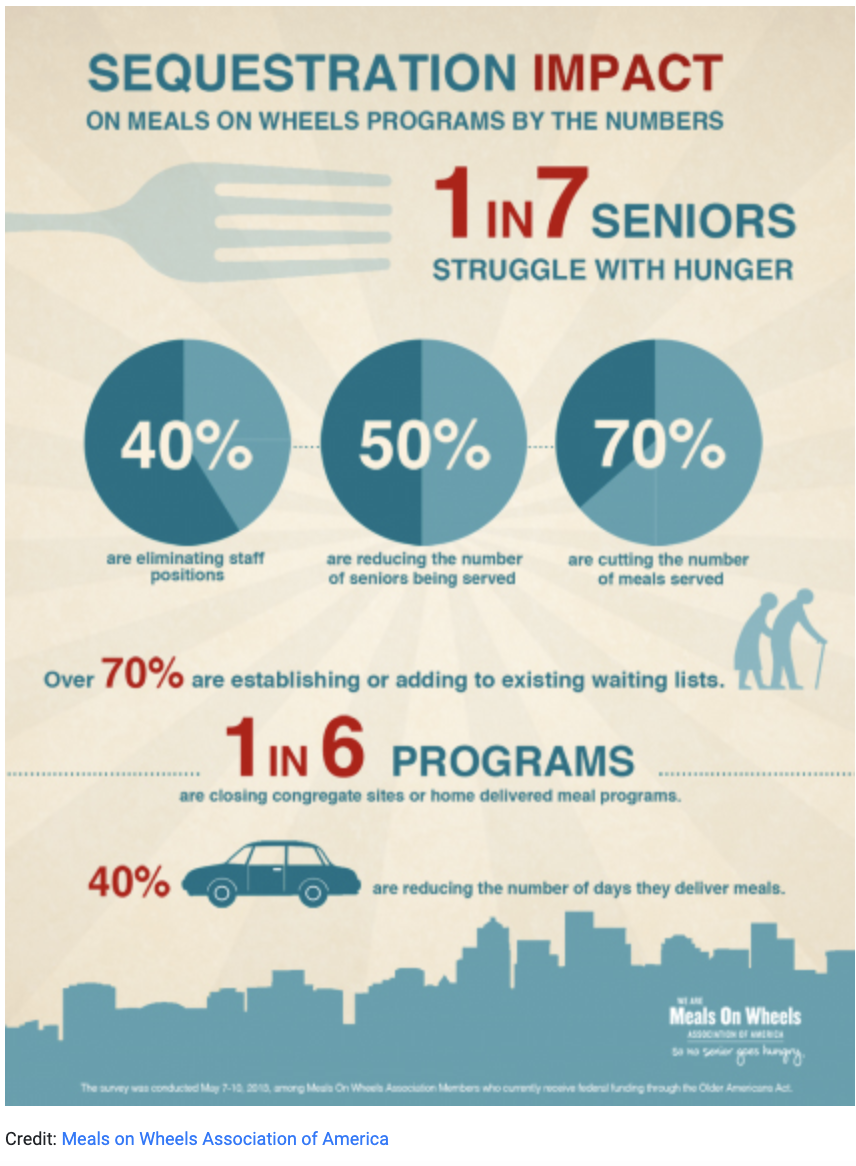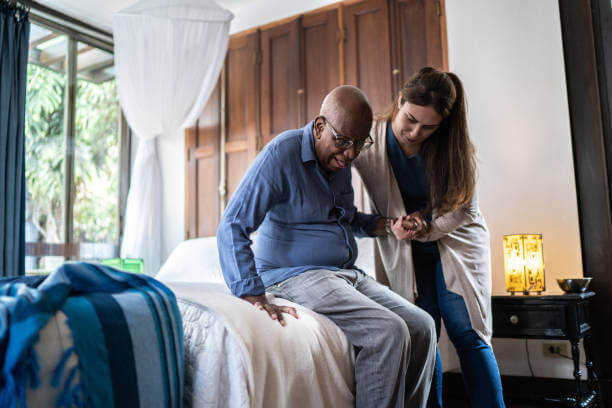On March 1, 2013, sequestration-fueled across-the-board federal budget cuts have had a profound impact on on the most vulnerable of our society, American seniors.
Nearly one in every 12 seniors over the age of 60 is “food insecure”, according to new research released this week in partnership with the National Foundation to End Senior Hunger (NFESH). That number represents 4.8million seniors, double the number of elderly going hungry in 2001.
Feeding America, the nation’s leading domestic hunger-relief charity, estimates that the number of food insecure seniors is projected to increase by 50% when the youngest of the Baby Boom Generation reaches age 60 in 2025.
But even in the face of these staggering numbers, budget cuts have caused the vital programs for seniors in need, like Meals on Wheels, to cut back their assistance. In a new survey released by MOWAA, here’s how the budget cuts are affecting Meals on Wheels programs around the country:
- Programs have been forced to cut, on average, 364 meals per week;
- Over 70% are establishing or adding to existing waiting lists;
- Programs have increased their waiting lists on average by 58 seniors;
- 40% of programs responding have eliminated staff positions; and
- One in six are closing congregate meals sites or home-delivered meal programs.

Ellie Hollander, President and CEO of the Meals On Wheels Association of America, testified on June 19, 2013 at a U.S. Senate hearing on senior hunger and poverty. At that hearing Ms. Hollander explained that for every $1 invested in Meals on Wheels programs, Medicaid sees a $50 savings because seniors are able to remain healthy and independent in their homes as opposed to needing nursing home care.
Caregiverlist has long championed Meals on Wheels, the national organization dedicated to eradicating senior hunger in America through community-based programs. In addition to providing what could be a senior’s only hot meal for the day, Meals on Wheels, in many instances, provides the only opportunity for human interaction to many elderly shut-ins. To learn more about MOWAA or to locate a local Meals on Wheels program, visit the MOWAA website.
Senior caregivers are on the front lines of helping the elderly to eat right as a component of healthy aging. You can learn additional crucial caregiving skills by taking a 10-hour online Caregiver Certification training course.







